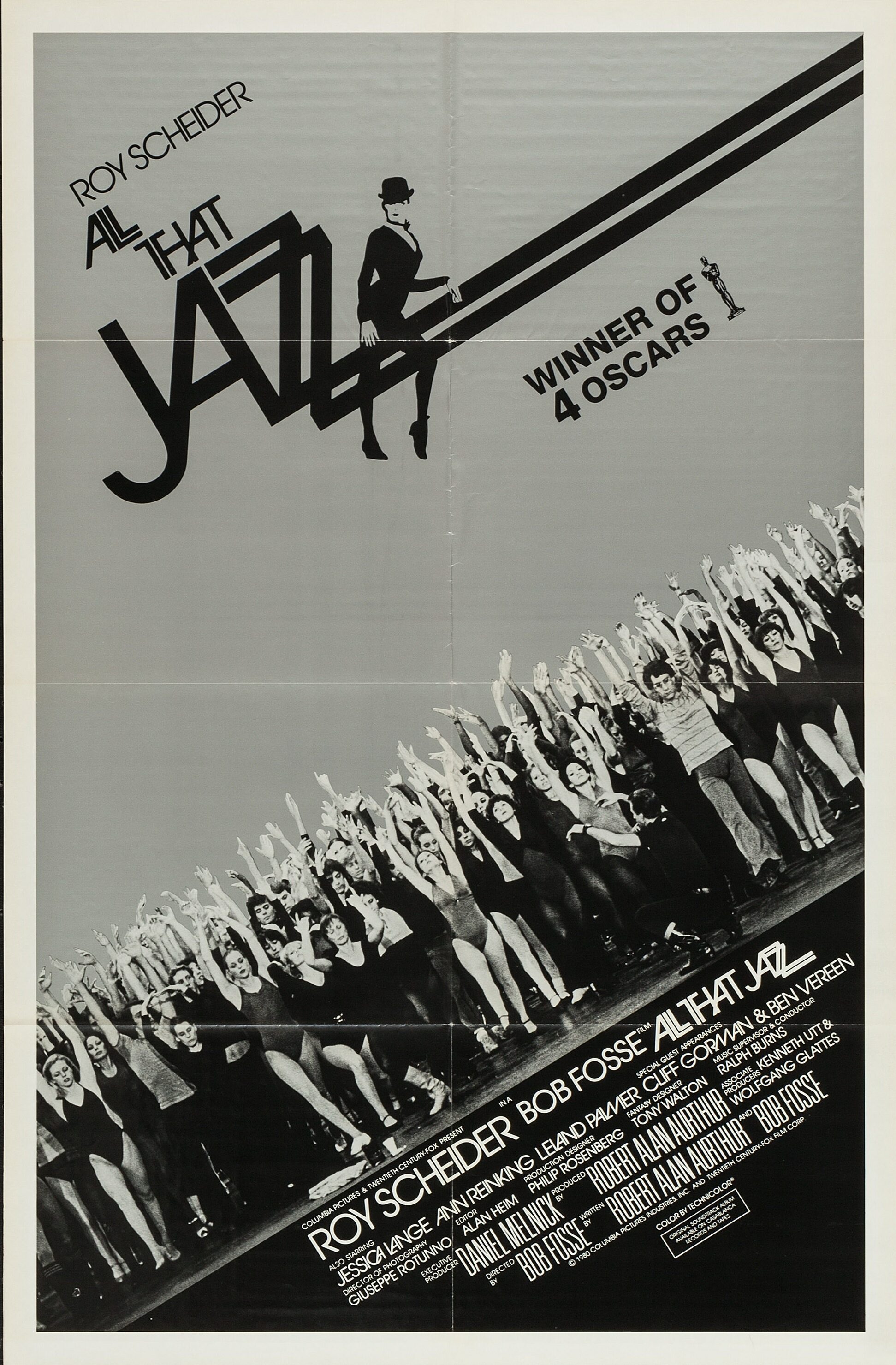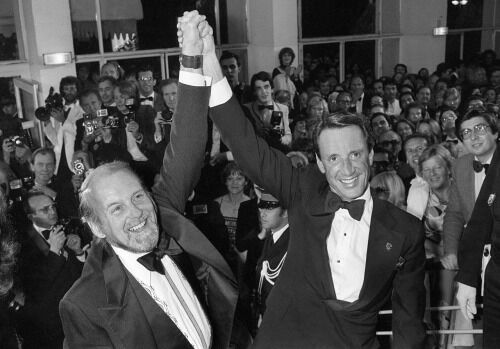In honor of the Year of the Month (1979) and this weekend's announcement of the Palme d'Or winner at the Cannes Film Festival, Glenn looks at Bob Fosse's All That Jazz.
 All That Jazz is my favourite Palme d'Or winner, awarded 35 years ago. Not only that, it's my favourite film from 1979. Actually, if you really want to know, Bob Fosse’s semi-autobiographical musical fantasy is my favourite film of any year, period, and it's remarkable how easily I can come to that decision whenever anybody asks what my favourite movie is considering I have the Libra mentality of terrible indecisiveness.
All That Jazz is my favourite Palme d'Or winner, awarded 35 years ago. Not only that, it's my favourite film from 1979. Actually, if you really want to know, Bob Fosse’s semi-autobiographical musical fantasy is my favourite film of any year, period, and it's remarkable how easily I can come to that decision whenever anybody asks what my favourite movie is considering I have the Libra mentality of terrible indecisiveness.
Looking over the list of subsequent Cannes winners and it’s a remarkably odd choice. Even when juries have given the top prize to an American film, it has never been one quite so big. It's not only a relatively big-budget America studio film, but it had already been a hit with Oscar voters several months earlier than the 1980 Cannes festival at which it won (tying with Kurosawa’s Kagemusha). Unlike No Country for Old Men – directed by this year’s Cannes jury presidents the Coen Brothers – which was apparently the victim of a jury belief that it did not need the prestige of a Palme d’Or, Kirk Douglas’ jury apparently had no qualms with awarding a four-time Oscar and two-time BAFTA winner with the most prestigious prize in international festival cinema. In a strange coincidence, Fosse’s 1979 Oscar Best Picture competitor, Apocalypse Now, had won the Palme d’Or a year earlier. It was the sort of occurrence that would never happen these days and even crazier to imagine something so razzling and dazzling taking the top prize from a competition that included names like Hal Ashby, Samuel Fuller, Bruce Beresford, Alain Resnais, Jean-Luc Godard, Walter Hill and the aforementioned Kurosawa.
Mr. Bob Fosse sent me this telegram. I am very happy and proud to share the Golden Palm with Mr. Kurosawa. I thank Roy Scheider for his collaboration in the film. And I regret not having been able to return myself, to express my joy and my emotion."

I hope I got the translation right!
Maybe I’m not giving Cannes juries enough credit. Maybe I'm not giving Hollywood's studios enough credit. Yet while I do highly doubt anything of its sort could come out via the major studios today, the way the film plays today doesn’t sound all that radical. Its structure of diegetic musical sequences, fantasy moments, and jukebox dance numbers fits right at home with the genre’s moldability - I don’t think audiences today necessarily have a true, unwavering concept of what the movie musical is. There was a long enough gap between ‘traditional’ genre hits that musicals were allowed to shapeshift into anything from Footloose, to The Bodyguard, to Moulin Rouge!, to Ray, to Pitch Perfect.
Being on the cusp of that radicalized take on musicals that had started seven years earlier with Fosse's Cabaret had done, still likely meant that the film was a surprise and a shock for many viewers. And we all know how much Cannes loves a surprise and a shock! Updating Fellini’s 8½ (only 15 years old at that point; All That Jazz is twice as old now than Fellini’s film was in ’79!) by way of a frazzled, decaying Manhattan bursting with creative energy worked surprisingly well.

From that stunning opening sequence that is so brilliantly edited and choreographed to George Benson’s “On Broadway” that they ought to teach it in school, to that climactic finale that is somehow both desperately sad and yet life-affirming in its celebratory pizzazz. Of course, there's the famous "Airotica" sequences, copied by seemingly dozens of music videos, and I personally adore perhaps most of all the hospital fantasy sequence where the women in his life each perform soul-bearing songs on a movie set inside his mind, confronting himself with his faults and his misdemeanors.
Forgive the sidebar, but if one wanted to be pop culturally in the now, they could look at it as a precursor to the Mad Men finale where Don tried to confront each of the women in his life with his faults, showing himself like never before. Is Erzsébet Földi as Joe Gideon’s daughter telling him “Ya gotta stop screwin’ around, daddy!” not a precursor to Sally and Don? "I scandalized my daughter..."

It wasn’t Fosse’s first time at Cannes. The film made prior to All That Jazz, the 1975 stand-up comedy biopic Lenny – the very one that his character Proxy in Jazz is seen tirelessly tinkering with – competed and won the Best Actress prize for Valerie Perrine. If you’ve noticed I have more or less avoided actually talking about the film itself then that’s because I have never actually been able to truly write about All That Jazz. I find it such a beast of a film that I inevitably start writing one thing and spin right off onto another and there simply isn’t enough time to spend 2000 words on why the editing is the best I've ever seen, or why individual costumes are so important, and how every single scene, shot, and frame is perfect. There are certainly worse problems to have when writing about movies, but you’ll just have to take mine and Cannes’ word for it.

Who do you think will win this year's Palme d'Or and what do you make of All That Jazz's win 35 years ago?